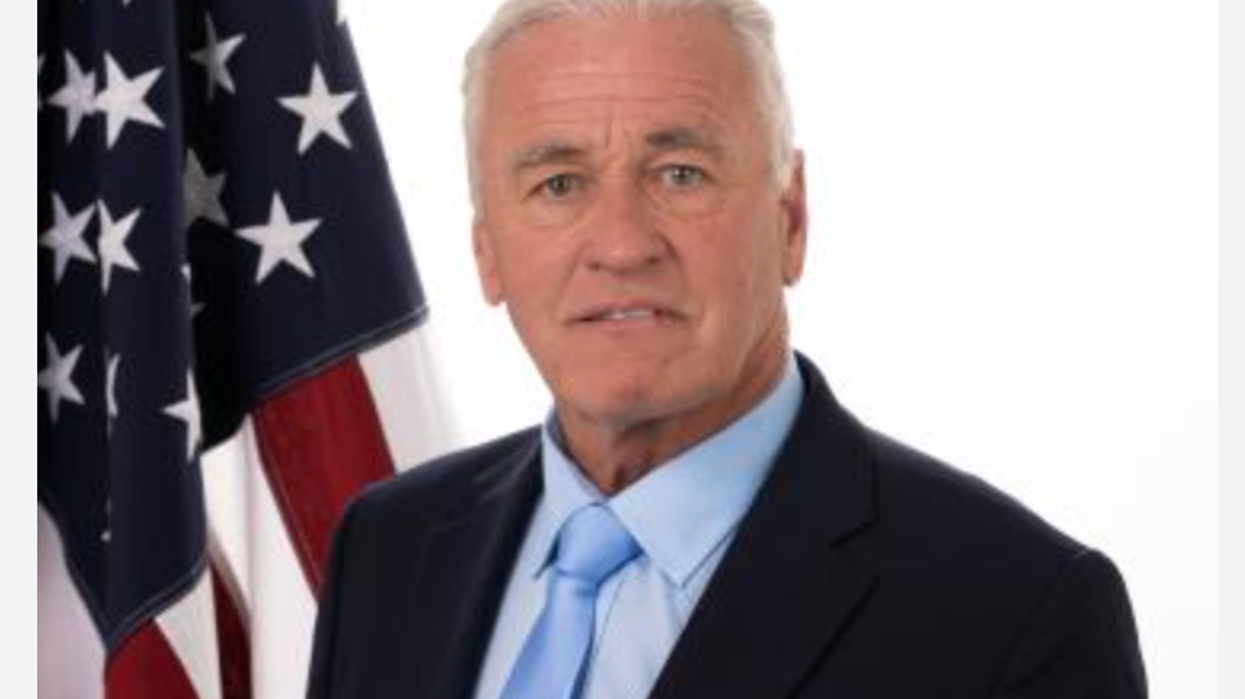Inside Kennedy's FDA, Chaos Reigns And Fear Of Corruption Rises
The chaos inside the Food and Drug Administration reached new heights last weekend with the forced resignation of the chief of the agency’s main drug approval division, a former biotech executive just five months into the job.
Center for Drug Evaluation and Research (CDER) director George F. Tidmarsh resigned Sunday after FDA commissioner Marty Makary put him on administrative leave and locked him out of his email account. Makary moved against Tidmarsh on Saturday after he was sued the previous day by a company owned by his former business partner.
The complaint? Tidmarsh used his government position “to inflict financial harm” on Kevin Tang’s Aurinia Pharmaceuticals, where the two apparently had had a falling out.
Then, after his resignation on Sunday, Tidmarsh gave an expansive interview to Stat, an industry-oriented online news organization, where he all but accused Vinay Prasad, the director of the Center for Biologics Evaluation and Research (CBER), of being behind his ouster. Dozens of FDA scientists have fled CBER in recent months due to the unstable, personalized nature of Prasad’s leadership.
Stat ran an article on Friday documenting slumping morale and a climate “rife with mistrust and paranoia” at CBER, where seven top leaders have been fired in recent months. Hundreds of the sub-agency’s 1,100 employees have quit or retired since Prasad joined the administration. Those that remain “are terrified of pushing back on Prasad, lest they face retaliation.”
(Prasad was briefly fired in July after being attacked by rightwing influencer Laura Loomer for questioning some drug approvals and criticizing President Trump, which happened years before he joining the administration; for more on the rightward march of Prasad’s career, see this GoozNews post. He was rehired two weeks later.)
When first hired, Prasad immediately put his division’s top gene therapy regulator, Nicole Verdun, on administrative leave based on accusations she was a bad manager. Stat reported over the weekend she will return to her job after an investigation found her behavior toward subordinates did not warrant permanent removal.
But the real reason Prasad went after Verdun was for her highly controversial approval of the gene therapy for Duchenne’s muscular dystrophy, which showed minimal improvement in patients’ lives. Prasad has generally stayed true to his philosophy that drugs whose clinical trials show questionable efficacy should not gain FDA approval. His initial appointment to run CBER caused biotech stocks to temporarily sink since questionable efficacy is an accurate description of many recent drug approvals.
Power play
Prasad has been busy accruing power since he was rehired in August. He regained his appointment as chief medical and scientific officer for the entire agency in September. Last month, he removed the scientist in charge of vaccine approvals, Anuja Rastogi, a move clearly in line with the anti-vaccine priorities of his ultimate boss, HHS Secretary Robert F. Kennedy, Jr.
According to Stat, Prasad has also removed Sandra Retzky, head of orphan products, and Daniel Singer, the chief of public health preparedness and response. The leaders of the pediatric therapeutics and clinical policy departments have resigned. Its interviews with agency employees, none of whom were willing to go on the record, suggest employees who remain at the agency are buckling under the workload.
Meanwhile, the agency is moving quickly to create an alternative “accelerated” pathway to gain drug approvals that bypasses the usual scientific process at FDA. In June, it created it is calling a National Priority Voucher program where agency officials will “select” drugs eligible for rapid reviews of their new drug applications. The drugs chosen will be “for companies aligned with critical national health priorities,” which were not specified. The reviews will take just 1-2 months instead of the usual 10-12 months. They will be conducted by a “tumor board stye review process,” run by a committee chaired by Prasad.
Numerous critics have warned this new process will substitute review by expert opinion rather than scientific evidence. Even the libertarian Cato Institute warns the application and review process under these priority vouchers will “heavily incentivize rent-seeking, lobbying, corruption, and excessive bureaucratic discretion in drug value assessments.”
Prior to his ouster, Tidmarsh questioned Prasad and Makary about the new “tumor board-style” committee's legality. “It was a total mess,” Tidmarsh told Stat on Sunday. “It was shrouded in secrecy and paranoia. So I sent an email saying I believe that this (first) meeting will be informal, non-decisionary.” In mid-October, the FDA announced the first nine drug companies whose new drug applications will receive the new accelerated process. Several would have been reviewed by CBER.
Tidmarsh also expressed deep fear about the future of the FDA and the uncertainty of the U.S. regulatory environment. “This is an existential threat to the FDA,” Tidmarsh told Stat. “Something’s got to be done.”
Tidmarsh is no heroic figure. Let me quote extensively from Stat’s report on the Aurinia Pharmaceutical lawsuit against him:
On Aug. 6, the FDA announced it was barring the sale of (Aurinia’s) naturally derived medicines, called desiccated thyroid extract, or DTE, after receiving hundreds of adverse event reports. The products have been prescribed for more than a century to treat people with low thyroid hormone levels and predate the FDA’s formal approval process. More than 1 million Americans use DTE products to treat low hormone levels.
Aurinia accused Tidmarsh of making “false and defamatory statements” about the company and voclosporin (the generic name for DTE) due to a “longstanding personal vendetta against Kevin Tang (Aurinia’s majority owner).” Tidmarsh also directed the FDA to remove DTE products from the market because it would hurt American Laboratories, which is majority owned by Tang, the Aurinia lawsuit alleges.
The lawsuit includes an email said to have been sent by Tidmarsh to Tang with a link to Tidmarsh’s LinkedIn post saying the products should be removed from the market. The subject line was “Good Luck.”
Tidmarsh began his career and earned his initial fortune before 2008 while CEO of Horizon Pharma. During his tenure, Horizon developed an arthritis pain medicine called Duexis, which combined two over-the-counter drugs – ibuprofen and the active ingredient in Pepcid, an antiacid. The now on-patent drug sold for $1,500 a month and was eventually sold as part of a suite of Horizon products to Amgen for $28 billion in 2022 – long after Tidmarsh left the company.
Still, Tidmarsh proudly claims development of Duexis as one of his major achievements on his Stanford University profile.
Merrill Goozner, the former editor of Modern Healthcare, writes about health care and politics at GoozNews.substack.com, where this column first appeared. Please consider subscribing to support his work.
Reprinted with permission from Gooz News









